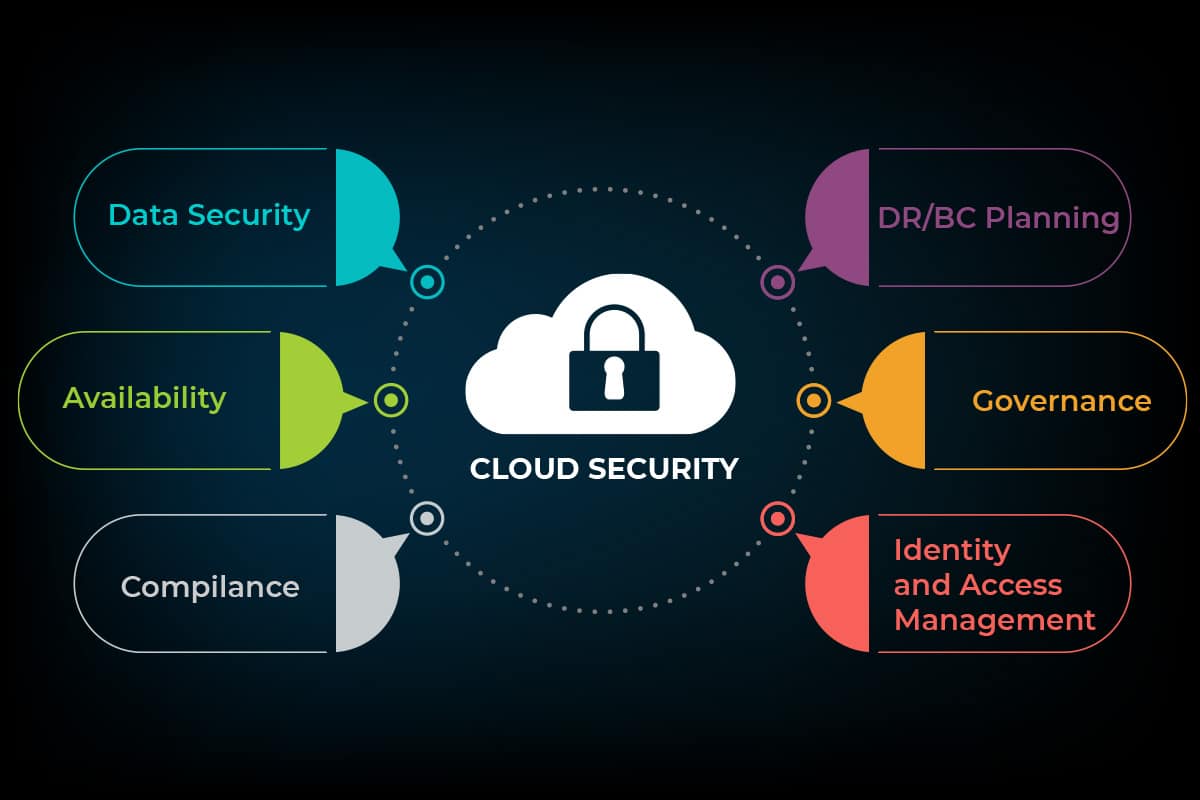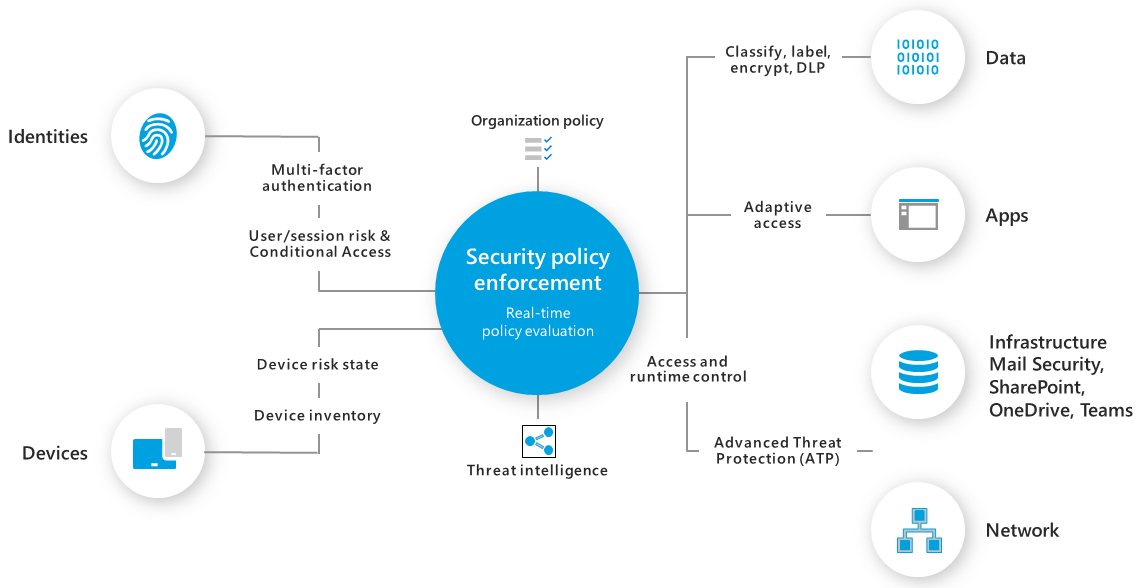In today’s digital age, cloud computing has become the cornerstone of modern business operations. Cloud services offer scalability, flexibility, and cost-efficiency, making them an ideal choice for organizations of all sizes. However, the convenience of cloud computing also comes with significant security challenges. Protecting sensitive data and ensuring seamless operations in the cloud environment is paramount. In this guide, we will explore cloud security services and strategies to safeguard your cloud-based operations effectively.
Introduction to Cloud Security
Before delving into cloud security services, it’s essential to understand the unique security concerns associated with cloud computing. When you move your data and applications to the cloud, they are stored on remote servers, making them susceptible to various threats, including:
Data Breaches
Data breaches occur when unauthorized individuals or entities gain access to sensitive data stored in the cloud. These breaches can lead to financial losses, damage to an organization’s reputation, and legal consequences.
Cloud providers have recognized the criticality of this issue and offer robust solutions to mitigate data breach risks. For example, AWS Identity and Access Management (IAM) and Azure Active Directory provide granular control over user access, ensuring that only authorized personnel can access sensitive data.
Data Loss
Data loss in the cloud can occur due to various factors, including hardware failures, accidental deletion, or even malicious actions. Losing critical data can disrupt business operations and lead to significant setbacks.
To combat data loss, cloud providers offer data backup and recovery services. AWS Backup and Azure Backup, for instance, allow organizations to create automated backups of their cloud data, ensuring that no data is irretrievably lost.
Malware and Phishing
Cloud environments are not immune to malware and phishing attacks. Malicious actors may attempt to infiltrate your cloud infrastructure to compromise data integrity or steal sensitive information.
To counteract these threats, cloud providers often integrate threat detection and mitigation tools into their platforms. AWS GuardDuty, for instance, continuously monitors your AWS resources for suspicious activity, providing early warnings of potential security issues.
Compliance Issues
Failing to meet regulatory compliance requirements can result in hefty fines and legal consequences. Different industries and regions have specific regulations governing data security and privacy, making compliance a complex challenge for organizations.
Cloud providers, aware of the need for compliance, offer services to help organizations meet these requirements. AWS Config and Azure Policy, for instance, enable organizations to define and enforce compliance policies within their cloud environments.

Cloud Security Services
Now that we’ve examined the unique security concerns in the cloud, let’s delve into the specific services and tools offered by cloud providers to address these challenges:
Identity and Access Management (IAM)
IAM solutions are fundamental in controlling who has access to your cloud resources. They enable you to manage user identities, roles, and permissions effectively.
AWS IAM is a powerful service that allows organizations to define and enforce fine-grained access policies, ensuring that only authorized users and applications can interact with resources. Similarly, Azure Active Directory offers comprehensive identity and access management capabilities, including single sign-on (SSO) and multi-factor authentication (MFA).
Data Encryption
Encrypting data both at rest and in transit is crucial to protect it from unauthorized access. Cloud providers offer encryption services, such as AWS Key Management Service (KMS) and Azure Key Vault, to secure your data.
AWS KMS allows you to create and manage encryption keys to protect your data, while Azure Key Vault provides a secure repository for storing keys, secrets, and certificates.
Network Security
Implementing robust network security measures is essential to protect your cloud infrastructure. Services like AWS Virtual Private Cloud (VPC) and Azure Virtual Network help you isolate and secure your resources.
AWS VPC allows you to create a private network within the AWS cloud, complete with custom routing and security controls. Azure Virtual Network offers similar capabilities, allowing you to create isolated virtual networks for your Azure resources.
Security Monitoring and Incident Response
To detect and respond to security threats in real-time, cloud providers offer services like AWS GuardDuty and Azure Security Center. These services provide continuous monitoring and help you respond swiftly to security incidents.
AWS GuardDuty uses machine learning to analyze AWS CloudTrail logs, VPC flow logs, and DNS logs to identify suspicious activity. Azure Security Center provides advanced threat protection across all Azure and on-premises resources.
Compliance and Governance
Ensuring compliance with industry-specific regulations is vital for many organizations. Cloud services like AWS Config and Azure Policy help you maintain compliance by providing automated checks and governance policies.
AWS Config continuously monitors and records configurations for your AWS resources, allowing you to assess, audit, and evaluate compliance against predefined or custom rules. Azure Policy enables you to create, assign, and enforce policies that help maintain compliance with your corporate standards and regulatory requirements.

Strategies for Seamless Cloud Security Operations
Now that we’ve explored essential cloud security services, let’s discuss strategies to ensure seamless cloud security operations:
Comprehensive Security Policies
Developing comprehensive security policies is a foundational step in ensuring cloud security. These policies should cover all aspects of your cloud environment, including data classification, access control, and incident response.
Ensure that your security policies align with industry standards and regulations relevant to your organization. Regularly review and update these policies to adapt to evolving security threats and compliance requirements.
Employee Training and Awareness
The human element remains a critical factor in cloud security. It’s essential to invest in employee training to enhance their awareness of security best practices. Conduct regular security awareness programs to educate your workforce about potential threats and how to mitigate them.
Employees should be trained not only in using security tools but also in recognizing and reporting suspicious activities. A well-informed workforce can act as an additional layer of defense against security threats.
Regular Security Audits and Testing
Security is not a one-time effort; it’s an ongoing process. Regularly perform security audits and penetration testing to identify vulnerabilities in your cloud infrastructure. These assessments can help you proactively address potential security weaknesses before malicious actors exploit them.
Conducting thorough testing allows you to identify and remediate vulnerabilities, ensuring that your cloud environment remains secure and resilient.
Cloud Provider’s Security Tools
Leverage the security tools and services provided by your cloud provider. These tools are designed to work seamlessly within their environment and can help you automate security tasks.
By using these native services, you can take advantage of the expertise and resources of the cloud provider to enhance your security posture. It’s important to stay informed about updates and new features in these tools to maximize their effectiveness.
Incident Response Plan
No security strategy is complete without a well-defined incident response plan. Develop a robust plan that outlines the steps to be taken in the event of a security breach. Test this plan regularly to ensure its effectiveness and the readiness of your security team.
An effective incident response plan should include procedures for identifying and containing security incidents, communicating with stakeholders, and restoring normal operations as quickly as possible.
Data Backup and Recovery
Data is a critical asset for any organization, and losing it can be disastrous. Implement a reliable data backup and recovery strategy to safeguard against data loss. Regularly back up critical data and test the recovery process to ensure it works as expected.
Cloud providers offer backup and recovery services that can simplify this process. Ensure that your backup strategy includes off-site storage to protect against data loss due to localized disasters.
Third-Party Security Solutions
Consider using third-party security solutions and services that complement your cloud provider’s offerings. These solutions can provide an added layer of security and help you meet specific compliance requirements that may not be fully addressed by native cloud services.
When choosing third-party solutions, ensure they are compatible with your cloud environment and provide the level of security and compliance required for your organization.
Conclusion
In summary, cloud security is a multifaceted challenge that requires a combination of services, strategies, and a proactive approach. By leveraging cloud security services offered by your provider and implementing robust security practices, you can safeguard your data and ensure the seamless operation of your cloud-based infrastructure. Remember that security is an ongoing process, and staying vigilant is key to protecting your organization’s digital assets in the cloud.
References:
Azure Security Center Documentation
For more insights on cloud security and related topics, be sure to check out our ISmile Technologies blog.
By following these guidelines and implementing the right cloud security services, you can navigate the cloud landscape with confidence, knowing that your data and operations are well-protected.








